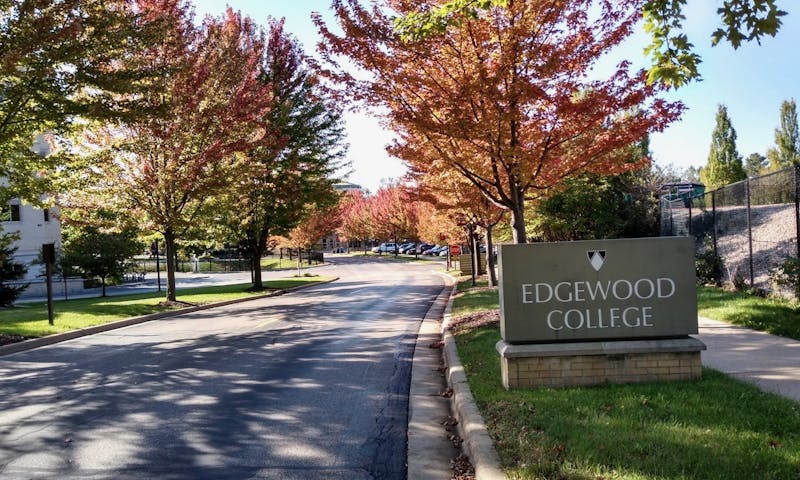
Edgewood’s Cutting Edge program provides students opportunities they otherwise might not receive in the UW System.
Image By: Courtesy of Edgewood XC & TF via Twitter
Edgewood’s Cutting Edge program provides students opportunities they otherwise might not receive in the UW System.
Image By: Courtesy of Edgewood XC & TF via TwitterFor years, Brianna Huebner listened to one of her students express her desire to attend college.
Not many opportunities presented themselves at the time for the student, who has Down syndrome. Huebner, then a high school special education teacher in Rockland County, found a college program that specializes in assisting individuals with intellectual and developmental disabilities.
After being admitted, Huebner tracked the student’s progress and gawked at how the program changed her for the better.
“I just couldn’t believe my eyes,” Huebner said. “I often think back to high school when I was her teacher. I couldn’t have given her those experiences in the four walls of my special education classroom.”
At The Cutting Edge Program offered by Edgewood College, she became independent, made new friends, developed a passion for art and started her own business to sell her designs, according to Huebner.
The success story at Edgewood underscores a growing importance for institutions of higher learning to offer services which accommodate students with intellectual disabilities. Programs intended for students with learning disabilities maintain their importance and figure prominently on college campuses. Educational opportunities contrived for individuals with developmental disabilities, however, remain low in number.
In Wisconsin, only five such programs exist, according to Huebner, who took over as director of Cutting Edge in 2015. Others include those at Madison Area Technical College, Bethesda College at Concordia University Wisconsin and Shepherds College. Just recently, the UW-Whitewater launched its LIFE program, the first of its kind in the UW System.
Founded in 2007, Cutting Edge is the state’s longest-running program for students with intellectual disabilities. The program provides students with disabilities “a full college experience,” according to Huebner. This entails a mixture of academics, social support, independent living and prospects for future employment.
Although professional staff and other Edgewood students keep tabs on program participants, Cutting Edge takes a less-regimented approach and enables students to shape their daily schedules and activities.
“It’s a very individualized program where we give them the support they need based on their disability and areas that they need to improve upon,” Huebner said. “But we also give them that autonomy or that independence to make those decisions, day in and day out.”
Educational programs like Cutting Edge also look toward the future. Students participate in internships every semester to gain real-work experience. These range from jobs on campus to managing for UW-Madison’s men’s basketball team.
Huebner said that 85 percent of Cutting Edge graduates are employed and 75 percent of graduates are both employed and living independently — most students choose to reside in Madison post-graduation. One student with a computer science degree went on to work for American Family Insurance.
“Our students tend to want to stay in the Madison area because that’s where they’ve built their network of support, where they feel comfortable,” Huebner said. “It’s where they’ve kind of built their story and what they’re going to do from that point on.”
Over in Whitewater, the new LIFE Program will attempt to accomplish similar goals to Cutting Edge. Development for the program began in 2015, and it welcomed its first cohort of eight students this fall.
The LIFE Program accepts students between the ages of 18-25 and offers a variety of educational, social and professional opportunities, according to program coordinator Ashlea Roselle. This includes a “leisure skills” course participants take with other undergraduate students, attending sporting events and on-campus entertainment and involvement in student organizations.
Being the first UW System program to serve students with intellectual disabilities, Roselle acknowledged the importance of granting educational opportunities to individuals who normally remain outside the purview of higher education.
“[The LIFE Program is] helping an underserved part of the population that has a ton of potential, but has had limited opportunities,” Roselle said. “They not only provide opportunities for the enrolled students, but for the campus community as a whole.”
While most universities offer well-funded and resource-based services to help students with learning disabilities such as dyslexia and ADHD, educational programs aimed to empower those with intellectual and developmental disabilities in Wisconsin linger on the peripheries.
Two of the state’s five intellectual and developmental disability programs border UW-Madison, the flagship campus of the UW System.
Huebner prescribed a change in mindset for Wisconsin’s higher education community. She remembered from her attendance at a national conference that every state school in the Carolinas provide a program for people with intellectual disabilities.
By creating new programs for individuals with intellectual and developmental diseases, new pathways will be available for many to succeed, according to Huebner.
“People who have intellectual and developmental disabilities at one point were just institutionalized and kind of put aside,” Huebner said. “Now, they have these great opportunities to go to college, and why wouldn’t we give them that opportunity to grow and gain all that things that we’ve gained through our college experience?”